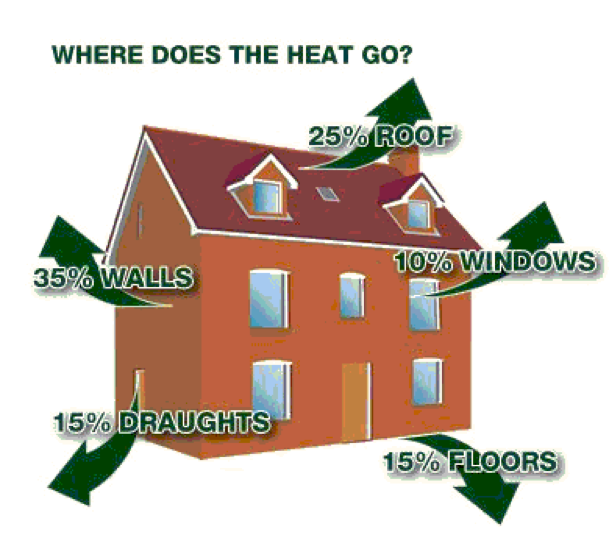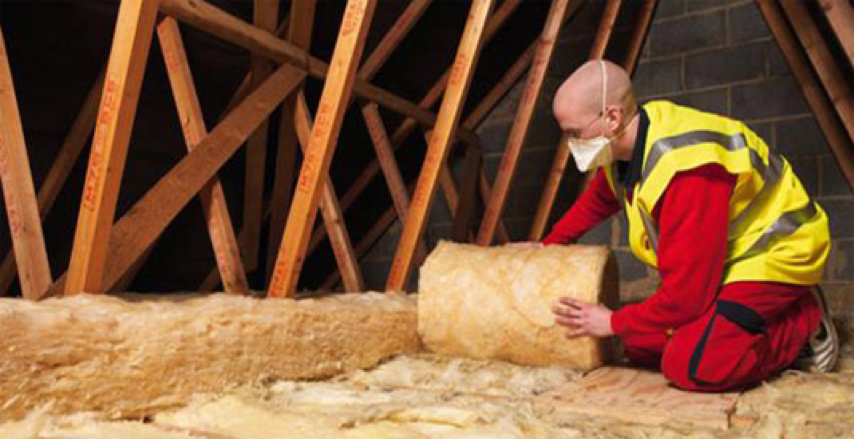
There is a growing concern across the UK for rising energy prices and cost of living during the winters. Not a day goes by without thinking that more of our precious pennies are consumed even through winters when one expects the cost of living to decrease in such a season. It is estimated that the amount of electricity that is generated from gas will most likely increase to about 60% between now and 2020 as more coal-fired power stations close down. Several factors are involved in dampening the cost of living during winters with increased energy prices. Here are some tips for insulating your house this winter, which can result in significant savings.
What Can You Do?
Rather than sticking to energy suppliers that you know about, it is important to compare energy providers because they offer special deals for one-year rolling contracts and new customers. There are several price comparison sites that you can refer to when considering a switch because selecting an appropriate deal might save you hundreds of pounds in the long run.
Insulating your loft

Heat rises, and if your loft, attic or flat roof isn’t insulated, you will be losing approximately a quarter of the heat in your home through the roof. Insulating your roof is a simple and effective way to reduce heat loss and therefore energy bills.
This process is worth the effort as loft insulation is effective for at least 42 years and it should pay for itself many times over.
To do this use rolls of mineral wool insulation. The first layer goes between the joists the next is laid at right angles to cover the joists and make the insulation up to the required depth. This can either be done by someone competent in DIY or a professional installer.
Cavity Wall Insulation
About a third of the heat lost in an uninsulated home escapes through the walls. Most houses built from the 1990s onwards have wall insulation to keep the heat in, but if your home was built after 1920, the chances are that its external walls are made of two layers with a gap or cavity in between. Cavity wall insulation fills this gap to help keep the heat in and save energy.
Before commissioning this work make sure that your installer should be a member of one of these organisations NIA, CIGA and BBA.
Using Tin Foil
Putting tin foil behind the radiators will prevent unnecessary heat loss , specifically on those that are close to external walls. Using heat reflective aluminium foil will help prevent heat from escaping through the walls and reflect it back into the room. Although, you can consider using good quality kitchen tin foil however, several DIY retailers keep special radiator foil, which is perfect for insulating homes. By putting tin foil behind radiators, you will be able to lessen the thermostat by a degree or two. According to the Energy Saving Trust, by bringing the thermostat down to one or two degrees, you can save about £65 a year. Keep in mind that wasted heat costs more money therefore, the more heat you can insulate the more you will save.
Thermal Curtains
Using thick curtains can also keep your home well insulated and prevent any heat from escaping through the walls. If you are unwilling to splash out your current curtains, you can always add thermal lining behind them, which is a comparatively cheaper option, then buying new ready-made thermal curtains. Lining current curtains with insulating materials can reduce heat loss substantially, about 25%.
Double and triple Glazing Windows
Double and triple glazed windows are heat-efficient but expensive at the same time. However, this doesn't mean you can't use them! A cost-effective alternative is a special film that is put across the windows and imitates the same effect of double-glazing. This film can be secured by using double-sized tape or self-adhesive foam to seal any gaps around the windows. Windows and doors are the obvious places heat loss occurs and this is basically due to potential draught exposures which can be eliminated by using draught excluder sealant.
Energy-Efficient Products
It is estimated that about £60 can be saved round the year if you use energy-saving light bulbs. They are not only affordable but also durable when compared to traditional light bulbs. Apart from using energy-efficient products, you can also consider upgrading your boiler, which is believed to save more than £300 a year.
As energy prices soar, it has become even more difficult for several people to maintain cost of living during the winters. Therefore, implementing the above tips for insulating your house this winter will guarantee to save considerable money on energy bills.
Image credits: sqspcdn.com & newark-sherwooddc























































































































































































 Full range
Full range Plant Sales
Plant Sales Plant Hire
Plant Hire Careers at Plantool
Careers at Plantool


 Follow us @hirecentres
Follow us @hirecentres








